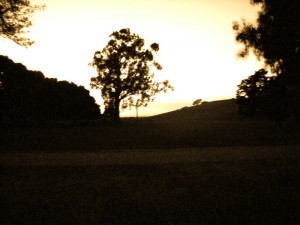I’ve just been reading historian Gary Dorrien’s essay “Pragmatic Postmodern Prophecy,” which discusses Cornel West as an intellectual and as a religious leader. (This essay, from Dorrien’s 2010 book Economy, Difference, Empire: Social Ethics for Social Justice, is an updated version of a chapter from his 2008 book Social Ethics in the Making.)
Dorrien tells the story of West’s intellectual evolution, and his evolution as a public intellectual. Dorrien also gives succinct reviews of major critiques of West. Towards the end of the essay, Dorrien summarizes West, casting him as primarily a religious thinker:
He [West] never really changed, notwithstanding the Left critics who liked his early writings and claimed that he sold out later. From the beginning West was committed to a Christian liberationist vision of social justice and reconciliation, though some readers wrongly took his early writings to be Marxism dressed up as Christian though. West was not “really” a Marxist who used Christianity; it was more the other way around. He began as a liberationist social critic committed to building progressive multiracial coalitions, and he remained one. (p. 334)
I’ve never quite understood why Unitarian Universalists (and other religious liberals, for that matter) don’t spend much time thinking about West, but Dorrien’s summary helps me understand why so few of us seem to bother with West. It’s not his forthright Christianity; for although some Unitarian Universalists might be uncomfortable with West’s trinitarian Christianity, our own humanist theologian William R. Jones showed us back in 1974 how liberal “humanocentric” theists and liberal humanists have plenty in common, or at least enough to build alliances to fight oppression together.
Instead, I think it’s because West is firmly aligned with liberationist Christian theology, while we Unitarian Universalists mostly remain aligned with the old Social Gospel. West is a Christian socialist who’s not afraid of revolutionary ideas, not afraid of taking risks that don’t always work out, and he’s committed to rapid change. The Social Gospel, as it exists today, still uses liberal but not revolutionary ideas, plays down risk, and works towards slower evolutionary change. Unitarian Universalism (and many other liberal religious groups) are not going to be comfortable with West because his theology is further to the left than we are comfortable with. Unfortunately, this means we have cut ourselves off to some extent from one of the few religious progressives who is a public intellectual, someone who has engaged both the academics and the broader public in conversations about progressive religion.
I’ve long been interested in West because in my view he’s the most prominent intellectual still working in the long tradition of American pragmatism that stretches back to Emerson, Peirce, and Dewey. All of us who are American religious liberals really should have some understanding of the pragmatist tradition, since it has been so influential for our religious tradition. So I wonder if we could think about West as a sort of successor to Emerson: a public intellectual who writes essays that are both popular and deeply thoughtful — and on that basis, we might think of taking his theology seriously, even if we don’t quite agree with it.

